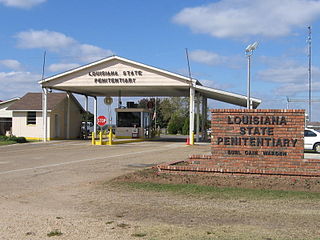Related Research Articles

Murder is the unlawful killing of another human without justification or valid excuse, especially the unlawful killing of another human being with malice aforethought. This state of mind may, depending upon the jurisdiction, distinguish murder from other forms of unlawful homicide, such as manslaughter. Manslaughter is a killing committed in the absence of malice, brought about by reasonable provocation, or diminished capacity. Involuntary manslaughter, where it is recognized, is a killing that lacks all but the most attenuated guilty intent, recklessness.

Burglary, also called breaking and entering and sometimes housebreaking, is an unlawful entry into a building or other location for the purposes of committing an offence. Usually that offence is theft, but most jurisdictions include others within the ambit of burglary. To engage in the act of burglary is to burgle in British English, a term back-formed from the word burglar, or to burglarize in American English.
In law, attendant circumstances are the facts surrounding an event.

Capital punishment is a legal penalty in the U.S. state of Louisiana.
Capital murder was a statutory offence of aggravated murder in Great Britain and Northern Ireland and the Republic of Ireland, which was later adopted as a legal provision to define certain forms of aggravated murder in the United States. In some parts of the U.S., this term can define certain acts of aggravated murder: a capital murder is any murder that makes the perpetrator eligible for the death penalty.
Coker v. Georgia, 433 U.S. 584 (1977), held that the death penalty for rape of an adult woman was grossly disproportionate and excessive punishment, and therefore unconstitutional under the Eighth Amendment to the United States Constitution. A few states continued to have child rape statutes that authorized the death penalty. In Kennedy v. Louisiana (2008), the court expanded Coker, ruling that the death penalty is unconstitutional in all cases that do not involve murder or crimes against the State.
The precise definitions of and punishments for aggravated sexual assault vary from nation to nation and state to state:

In North America, the legal age of consent relating to sexual activity varies by jurisdiction.
Rape is a type of sexual assault initiated by one or more persons against another person without that person's consent. The act may be carried out by physical force, or where the person is under threat or manipulation, or with a person who is incapable of valid consent. It is the name of a statutory crime in jurisdictions such as England and Wales, Northern Ireland, Scotland, California, and New York, and is a legal term of art used in the definition of the offence of sexual violation in New Zealand.

The Penal Code of Singapore sets out general principles of the criminal law of Singapore, as well as the elements and penalties of common criminal offences such as homicide, theft and cheating. The Penal Code does not exhaustively define all the criminal offences applicable in Singapore – a large number of these are created by other statutes such as the Arms Offences Act, Kidnapping Act, Misuse of Drugs Act and Vandalism Act.

The Revised Penal Code contains the general penal laws of the Philippines. First enacted in 1930, it remains in effect today, despite several amendments thereto. It does not comprise a comprehensive compendium of all Philippine penal laws. The Revised Penal Code itself was enacted as Act No. 3815, and some Philippine criminal laws have been enacted outside of the Revised Penal Code as separate Republic Acts.
Prostitution in Romania is not itself criminalized, although associated activities, such as procuring, are criminal offenses, and solicitation is a contravention punishable by fines.
Philippine Criminal Laws is the body of law and defining the penalties thereof in the Philippines.
By Dutch law, moord (murder) is the intentional and premeditated killing of another person. Murder is punishable by a maximum sentence of life imprisonment, which is the longest prison sentence the law allows. A common misconception is that the maximum sentence is 30 years : this is the longest sentence that can be imposed other than life imprisonment. Intentionally killing another person without premeditation is called doodslag (manslaughter) and carries a maximum sentence of fifteen years imprisonment or life imprisonment when committed in aggravated circumstances or as an act of terrorism.
The Portuguese Penal Code was adopted in 1982 and has been revised on several occasions, most recently in 2007. It devotes a whole chapter on "crimes against human life". In fact, the very first crime addressed on that code is murder.
According to the modern Russian Criminal Code, only intentional killing of another human considered as a murder. The following types of murder are defined:
In the United States, the law regarding murder varies by jurisdiction. In most U.S. jurisdictions there is a hierarchy of acts, known collectively as homicide, of which first degree murder and felony murder are the most serious, followed by second degree murder, followed by voluntary manslaughter and involuntary manslaughter which are not as serious, and ending finally in justifiable homicide, which is not a crime at all. However, because there are at least 52 relevant jurisdictions, each with its own criminal code, this is a considerable simplification.
Capital punishment is a legal penalty in the U.S. state of Pennsylvania.
Under the Criminal Code of Georgia, crimes involving homicide are classified as intentional killing, intentional killing under aggravating circumstances, killing at the victim's request, intentional murder in a state of sudden, strong emotional excitement, intentional infanticide by a mother, murder by exceeding the self-defence limits, murder by exceeding the extent required for seizing a perpetrator, killing by negligence.